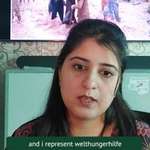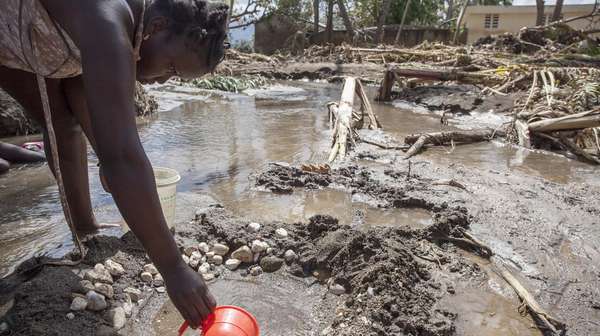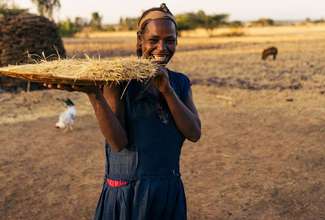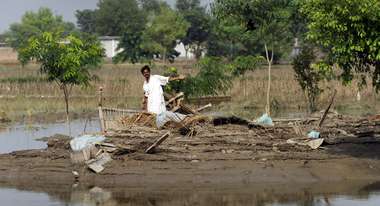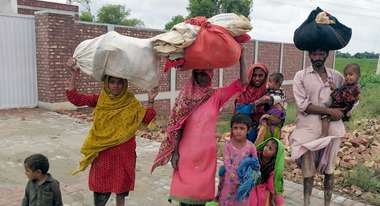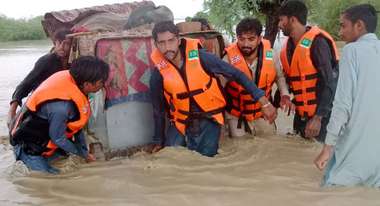The effects of climate change are a central cause of hunger and poverty.
Hunger, disease and homelessness loom large in Pakistan
Aisha Jamshed has been Welthungerhilfe's country director in Pakistan since 2020. In this guest article published in German newspaper Kölner Stadt-Anzeiger on September 22, she reports on the situation in the regions hit by the flood and urges the public to take more responsibility and increase humanitarian aid.
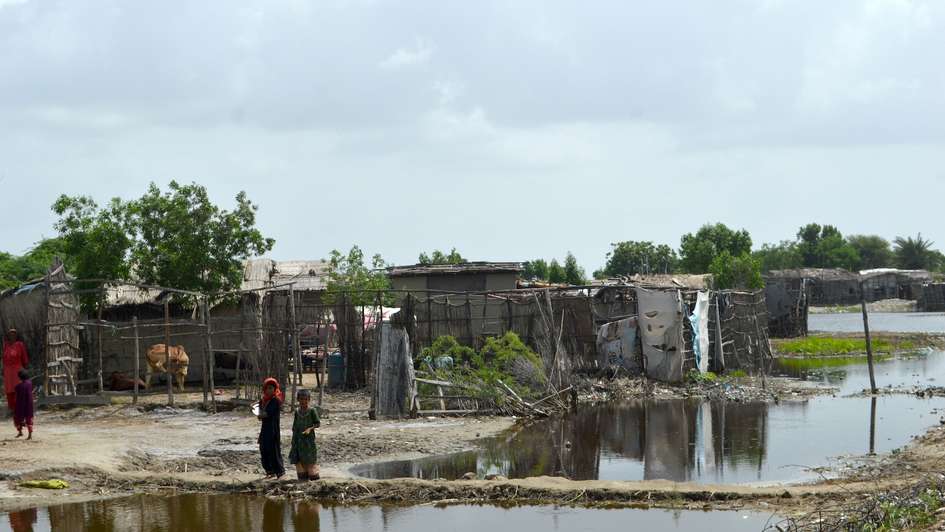
People in Pakistan have learned to cope with extreme weather. After all, heat waves, heavy rain and droughts alternate regularly throughout the year. But the amount of rain the monsoon brought this year was beyond imagination. Not for 50 years has it rained so much in August; in some provinces, seven to eight times as much rain fell as usual – and now a third of the country is under water.
Like practically every Pakistani, I was afraid for my family and friends. For example, my brother-in-law's family was trapped in their house, I couldn't reach them for days and didn't know if they were still alive. My relief that nothing bad had happened to them quickly gave way to concern about how humanitarian aid could be provided to the millions of flood victims. Thoughts of the scale of the disaster keep me awake at night.
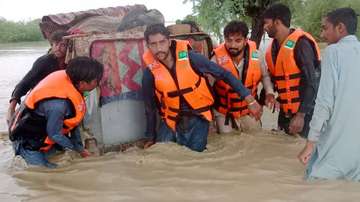
33 million people, as many as live in Bavaria, Baden-Württemberg and Hesse combined, have been affected by the floods, and 1,500 people have died. Some 13,000 kilometers of road, the equivalent of the total length of all highways in Germany, have been destroyed, and more than 930,000 livestock have drowned. Water and mud has damaged or destroyed 1.9 million homes.
We need to hear people's stories
Behind every number lies a fate, like that of Ahmed’s* family, whom Welthungerhilfe is supporting in the particularly hard-hit province of Sindh. The flood has taken everything from them: one of their five children drowned, their house was destroyed, the field on which Ahmed grew wheat has been washed away. Now they camp on the roadside, they have nothing to eat, no place to sleep, no privacy. They drink water that they know had corpses floating in it. The family will not be able to return home for the next few months until the water drains. The children will not go to school for the foreseeable future, and without income, they face the threat of debt. Ahmed’s family will face a daily struggle to avoid going to bed hungry.
Global Hunger Index: Rank 99 out of 121 countries surveyed
Even before the floods, the hunger situation in Pakistan was "serious," according to the Global Hunger Index, with the country ranking 99th out of 121 countries surveyed. The food situation is now set to worsen, with crops destroyed and food prices currently rising every two days. Whereas six months ago a family of six could buy the equivalent of €20 worth of wheat, rice, pulses, sugar and cooking oil for a month, today the same package costs €35.
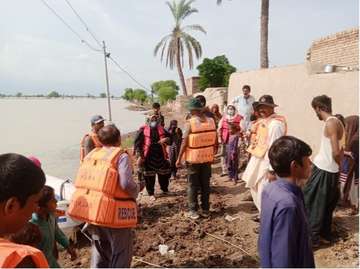
Together with its local partner organizations, Welthungerhilfe supports flood victims with food and basic necessities for daily survival, such as kitchen utensils, hygiene articles, tarpaulins, blankets and water filters. We pump water [dewatering] and distribute seeds so that farmers can sow where the water has run out. When diseases like cholera break out, we help with cash so people can afford medicine or a doctor's visit. So far, about €2.5 million have been mobilized for this aid.
I am glad to see that there is solidarity with the people in Pakistan in Germany. And we are grateful for every donation, no matter how small. Perhaps it is also the experience of the flood disaster in the Ahr valley that has made many people in Germany show solidarity with the flood victims in Pakistan, despite all their fears about their own situation.

We must not let the people down.
Aisha JamshedHowever, I am concerned about the lack of international attention and support for overcoming the consequences of the floods. The gigantic scale of the floods is also due to climate change, to which Pakistan itself is hardly contributing: The country is the fifth largest in the world by population and ranks 10th in global disaster risk rankings – but contributes less than one percent of global CO2 emissions.
When we talk about living in a global village, we must stand up for each other. This is a matter of justice. The countries that are largely responsible for climate change need to take responsibility and recognize that Pakistan and other communities particularly affected by the climate crisis need financial support to cope and adapt. Then we can do anticipatory work in Pakistan and elsewhere, minimizing disaster risks and managing extreme weather even better. We must not let people down.
Welthungerhilfe’s Response in Pakistan
Welthungerhilfe, together with its local partner organizations, is carrying out emergency relief measures in the provinces of Sindh, Balochistan, Khyber Pakhtunkhwa and Punjab. For example, affected people receive essential items such as mosquito nets, buckets with drinking water filters, kitchen utensils, jerry cans, solar lamps and hygiene items. We are also providing food kits and food vouchers. People who currently have to live on the streets receive plastic mats, tarpaulins and bamboo canes, which they can use to build emergency shelters. Welthungerhilfe and its partners are also helping with the dewatering of cities and are supporting agriculture by supplying seeds and tools.
*Name changed for privacy




